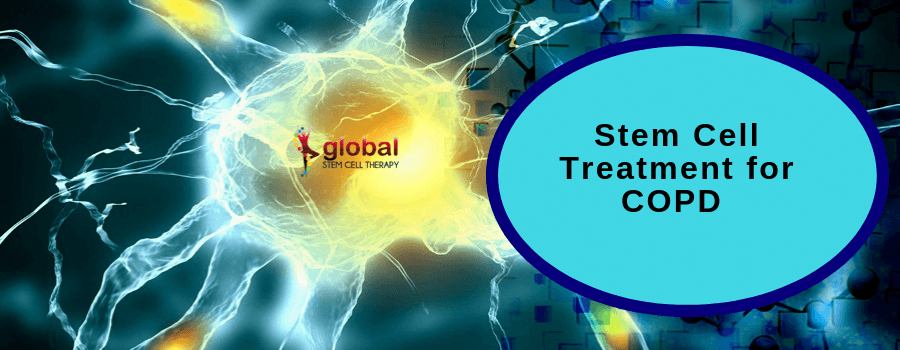
Medicina regenerativa para el tratamiento de la EPOC
La enfermedad pulmonar obstructiva crónica, o EPOC, es un problema pulmonar que dificulta la respiración. Cuando el flujo de aire en los pulmones se bloquea debido a una inflamación, se habla de EPOC. Suele ocurrir en personas que fuman o respiran gases nocivos durante mucho tiempo.
¿Podrían las células madre mejorar su EPOC?
Las personas con EPOC también pueden tener otros problemas de salud, como cáncer de pulmón o cardiopatías. Los síntomas de la EPOC pueden empeorar con el tiempo, dificultando actividades sencillas como caminar o subir escaleras.
Contenido
¿Cuáles son las causas de la EPOC?
La EPOC está causada por dos problemas principales: la bronquitis crónica y el enfisema. Estos problemas suelen darse juntos y dificultan la respiración.
- Bronquitis crónica: Se produce cuando los conductos que llevan el aire a los pulmones se inflaman e irritan. Esto provoca mucha tos y dificulta el paso del aire.
- Enfisema: El enfisema se produce cuando se dañan los diminutos alvéolos pulmonares. Estos alvéolos ayudan al organismo a obtener oxígeno. Cuando se dañan, los pulmones no funcionan como deberían.
La buena noticia es que la EPOC puede controlarse. Con el tratamiento adecuado, las personas con EPOC pueden sentirse mejor, tener una mejor calidad de vida y ralentizar la enfermedad.
Síntomas comunes de la EPOC
- Dificultad para respirar, especialmente al moverse.
- Demasiada mucosidad en los pulmones, lo que provoca una obstrucción de la garganta.
- Tos que produce mucosidad (amarilla, blanca o verde).
- Sibilancias y opresión en el pecho.
- Los labios o las uñas se vuelven azules.
- Infecciones pulmonares frecuentes.
- Tobillos, pies o piernas hinchados.
- Sentirse cansado o perder peso sin proponérselo (en fases avanzadas).
Principales causas de EPOC
- Fumar: El tabaquismo es la principal causa de EPOC. La mayoría de las personas que padecen EPOC han fumado durante mucho tiempo.
- Contaminación: La inhalación de gases nocivos, la contaminación atmosférica o el humo de la cocina en zonas mal ventiladas también pueden provocar EPOC.
¿Cómo ayudan las células madre a tratar la EPOC?
La terapia con células madre es una nueva forma de ayudar a los enfermos de EPOC. Utiliza las propias células del cuerpo para reparar y curar el tejido pulmonar dañado, reducir la inflamación y facilitar la respiración. Las células madre son especiales porque pueden convertirse en distintos tipos de células y ayudar a reparar partes dañadas del cuerpo.
¿Cómo funciona la terapia con células madre?
- Reparación del tejido pulmonar: Las células madre se extraen de la médula ósea o del tejido adiposo del paciente y se introducen en los pulmones. Pueden convertirse en células pulmonares sanas que sustituyan a las dañadas, ayudando a curar y reparar los pulmones.
- Reducir la hinchazón: Las células madre pueden ayudar a reducir la inflamación de los pulmones, que es un gran problema para las personas con EPOC. Al reducir la inflamación, las células madre ayudan a los pulmones a funcionar mejor.
- Apoyo al sistema inmunitario: Las células madre pueden ayudar a controlar el sistema inmunitario para que no ataque las partes sanas de los pulmones. Esto ayuda a reducir el daño y a mantener los pulmones más sanos.
Comentarios sobre la terapia con células madre para la EPOC
Beneficios de la medicina regenerativa para la EPOC
La medicina regenerativa, como la terapia con células madre, ofrece muchas ventajas a las personas con EPOC. He aquí algunas ventajas clave:
- Alivio de los síntomas: Las células madre pueden ayudar a reducir la inflamación de los pulmones, lo que facilita la respiración de los pacientes.
- Mejor calidad de vida: La terapia con células madre puede facilitar la realización de actividades cotidianas, como caminar o subir escaleras, al reducir los síntomas de la EPOC.
- Reparación de tejidos dañados: Las células madre pueden ayudar a reparar el tejido pulmonar dañado, lo que puede mejorar la función pulmonar con el tiempo.
- Menos dependencia de la medicación: Los pacientes pueden necesitar menos medicamentos, como inhaladores u oxigenoterapia, lo que ayuda a reducir los efectos secundarios.
- Mínimamente invasivo: La terapia con células madre no es una intervención quirúrgica, por lo que implica menos tiempo de recuperación y menos riesgos en comparación con la cirugía.
Coste de la terapia con células madre para la EPOC
En coste de la terapia con células madre para la EPOC puede cambiar en función del país, la clínica y el plan de tratamiento. A continuación se muestra una tabla con el coste medio de la terapia con células madre para la EPOC en diferentes países:
| País | Coste medio (USD) |
|---|---|
| México | A partir de $8.000 |
| Colombia | A partir de $9.000 |
| Tailandia | A partir de $12.000 |
| India | A partir de $10.000 |
| EE.UU. | A partir de $25.000 |
| REINO UNIDO | A partir de $30.000 |
Nota: Los costes pueden variar en función del estado del paciente, la ubicación de la clínica y la complejidad del tratamiento. Lo mejor es ponerse en contacto directamente con la clínica para conocer el coste exacto y discutir las opciones de pago.
Preguntas frecuentes sobre la terapia con células madre para la EPOC
¿Qué es la terapia con células madre para la EPOC y cómo funciona?
La terapia con células madre para la EPOC utiliza células especiales para sustituir o reparar el tejido pulmonar dañado. Estas células madre pueden convertirse en nuevas células pulmonares, lo que ayuda a respirar mejor y reduce la inflamación de los pulmones.
¿Quién es un buen candidato para la terapia con células madre para el tratamiento de la EPOC?
Las personas con EPOC que no han encontrado alivio con otros tratamientos, como inhaladores o medicación, pueden ser buenos candidatos. También puede ayudar a las personas en las primeras fases de la EPOC y a las que no desean someterse a una intervención quirúrgica.
¿Cuáles son los riesgos de la terapia con células madre para el tratamiento de la EPOC?
Algunos riesgos son infección, hemorragia o reacción alérgica. También puede haber problemas como daños en los tejidos en el lugar de la inyección. Es importante que hables con tu médico sobre estos riesgos antes de iniciar el tratamiento.
¿Cuándo puedo esperar resultados de la terapia con células madre para la EPOC?
Muchos pacientes notan una mejor respiración y más energía a las pocas semanas o meses del tratamiento. El tiempo necesario puede depender del estado de salud del paciente y de la gravedad de su EPOC.
¿Dónde puedo encontrar más información sobre la terapia con células madre para el tratamiento de la EPOC?
Puede ponerse en contacto con nosotros para que le ayudemos a encontrar las mejores clínicas para el tratamiento de la EPOC con terapia de células madre. También puede buscar información en sitios web médicos de confianza como PlacidWay o hablar con profesionales sanitarios con experiencia en medicina regenerativa.
¿Puede la terapia con células madre mejorar los niveles de oxígeno en pacientes con EPOC?
Sí, la terapia con células madre puede ayudar a aumentar los niveles de oxígeno al reparar el tejido pulmonar dañado y reducir la inflamación. Esto facilita la respiración y ayuda a los pacientes a sentirse menos cansados.
Comience su viaje hacia una respiración mejor
La terapia con células madre para la EPOC puede ayudarle a respirar mejor y a sentirse más cómodo. Si usted o un ser querido están interesados en obtener más información sobre la terapia con células madre para la EPOC, póngase en contacto con nosotros hoy mismo para informarse sobre las opciones de tratamiento y comenzar su viaje hacia una mejor salud y mejorar la calidad de vida de los pacientes con EPOC.
Las células madre regeneran el tejido pulmonar dañado y favorecen la cicatrización de las heridas. También pueden reducir la inflamación y prevenir nuevos daños en los pulmones suprimiendo la respuesta inmunitaria del organismo.






